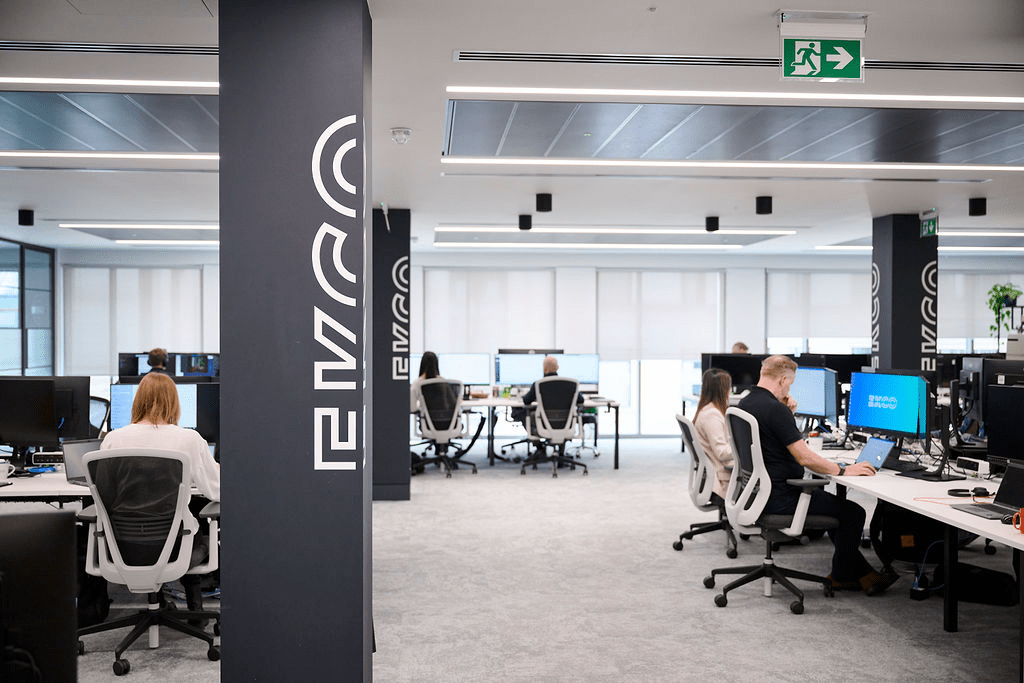Azure vs AWS vs Google: A Quick Guide


The public cloud is not just one big entity. Several cloud providers offer public solutions. The three key players that come up the most are Amazon Web Services (AWS), Microsoft Azure and Google Cloud Platform. Each of these solutions has its pluses and negatives, all of which depend on how and why you’re using the cloud. As we get into the Azure vs. AWS vs. Google debate, you’ll likely find that there’s one provider that is best for you, based on your needs.
Azure vs. AWS vs. Google: The Commonalities
Let’s get something out of the way: all of these providers are good.
These key players got to where they are because they offer secure solutions, innovation and compliance. The services auto-scale dependant on your consumption of resources, and you can utilise Infrastructure as a Service and Platform as a Service through all three, showing that there are many similarities between what all three of these clouds offer.
All three providers are well known and widely used across the world, helping ensure your company can grow seamlessly in the future across territories easily.
Azure vs. AWS vs. Google: Ease of Migration & Service Offerings
If you are a Microsoft user, Azure will be appealing. Transitioning to Azure and migrating your data is fairly simple as Microsoft’s offering includes familiar names like Office 365 and Enterprise Mobility Suite.
The flip side to this is that users who are not running Windows-only services and applications may run into problems trying to migrate. If these enterprises want to switch to Azure, Microsoft-based alternatives will have to be implemented. That being said, Azure has seen extended support for Linux operating systems in the past year, so greater compatibility could lie ahead.
AWS is very robust in its tools and applications, making it very likely that you will find a good home for what was previously based on-premise. AWS specialises in dealing with big data, and mixing and matching across different systems and tools. For companies willing to dig into customising their public cloud service to fit their needs, AWS is a great choice. For those who lack the time or skills, however, AWS could be a bit too complex or labour heavy.
AWS has been around the longest, so that could be why it has more offerings. Expect the other players to continue developing their platforms in the future.
Google offers the most modest toolset of the three, providing an intense focus on what they do offer but perhaps leaving some necessary tools out when it comes to migrating your business. Migration may be appealing without a lot of options to sift through, but those options have to be able to house your data easily. Or you have to be willing to put in the work to make it fit. For cloud-native companies, Google is a hit, but traditional enterprises may find this platform a harder learning curve.
Azure vs. AWS vs. Google: Customer Base
Looking to join the ranks of others like you? It often makes sense to see where companies in your industry are choosing to set up their public clouds. If it works for them, it might work for you.
AWS has hosted Netflix for a few years; Netflix is one of the most prolific of its clients. In the health industry, 3M Health Information Systems is an AWS customer. Airbnb, Channel 4, Citrix, Dole, Scholastic and other recognisable names round out a list that is heavy on web-based, tech-oriented companies.
Azure boasts customers across various industries, including the Seattle Seahawks, Fabletics, ASOS, HP, Kuwait Finance House and Ubisoft. This provider’s wide range of clients demonstrates its reach and popularity around the world.
Google’s clients are perhaps a bit less well known, though agencies like Niantic, Inc. (of Pokemon Go fame), Motorola, Johnson & Johnson and Coca-Cola are numbered in its list. Like AWS, Google Cloud seems to attract tech innovators.
Azure vs. AWS vs. Google: Pricing
We know that your budget matters. While you should not make your choice based on price alone, it is helpful information to have when you’re narrowing down the options.
To understand cloud pricing, you have to understand cloud instances. You can think of an instance in simple terms by envisioning it as a virtual environment for your computing needs. Different types of instances offer varying CPU, memory, storage and networking capacity… and instances come in different sizes.
Azure’s pricing, for those who want to make more of a commitment, includes a prepaid plan or monthly rates. Azure will let you cancel reserved instances for a fee.
With AWS, you can pay on-demand, without any upfront cost. You can reserve instances for a year or three years with an upfront cost, or bid for extra capacity with spot pricing. When it comes to on-demand usage, AWS typically falls in the middle of the other options.
Google offers a sustained-use discount or committed-use discount. The sustained-use model requires no commitment while the committed-use model requires a one or three-year-plan.
The specific cost of your cloud computing solution depends on the power and capacity you need. We strongly recommend checking out the pricing calculators for each service to determine what is best for your budget.
Azure vs. AWS vs. Google: What We Think
Truth be told, we don’t have a favorite. Looking at these three big names in the public cloud arena, we take each use case as it comes, helping our clients choosing what suits them the best for a particular project or workload.
Looking for some public cloud advice? The easiest thing to do is get in touch with us for a chat. We are happy to offer our expert advice in this area to help you make the right decision. For free, impartial advice, check out our cloud consulting services, or get in touch with us today.
Ease of migration will be a big factor
AWS is a good home for previously on-prem workloads, Azure will be appealing for businesses using Microsoft heavily, GCP will be the go-to for cloud-native organisations and startups.
There’s no red herring
Let it be known: all of these platforms are good, there’s no odd one out. It just depends on whether they’re utilised in the right way. That’s when things get tricky. Think and plan upfront, and worry less later.
Payment is really flexible
Super quick to implement, just make sure you’re confident on the usage of a workload before committing. Spikes in traffic and consistent overage can prove costly.

Question?
Our specialists have the answer
